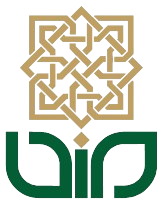In a lively yet
intellectually charged auditorium, the Master's Program in Islamic Community
Development (PMI) at the Faculty of Da'wah and Communication, UIN Sunan
Kalijaga, hosted an event that went beyond a mere public lecture. In
collaboration with the National Research and Innovation Agency (BRIN), the
event titled “Weaving Indonesia from the Ground Up: Identity, Harmony, and the
Future Research Map” served as an oasis amid the often superficial discourse on
national identity.
On Monday,
September 8, 2025, the Convention Hall of UIN Sunan Kalijaga Yogyakarta buzzed
with students, lecturers, and researchers eager for fresh ideas. They gathered
not to debate politics, but to explore how identity and social harmony could be
nurtured through grounded, practical research. Speakers from diverse
backgrounds offered complementary perspectives.
Delivering the
keynote address, Dr. Abdur Rozaki, M.Si., Vice Rector for Student Affairs and
Cooperation at UIN Sunan Kalijaga, opened with a firm message. He stressed that
diversity is not merely a sociological fact but a tremendous potential for
building a just and sustainable nation—provided it is managed well.
"Failure to nurture diversity and the practice of corruption are the two
things that bring ruin to a nation. If we can manage these two, Indonesia can
become a great nation," he said, urging academics to produce relevant
research that addresses real societal challenges.
More than just
theory, grounded research was exemplified by Prof. Dr. Koeswinarno, a BRIN
researcher. With a light storytelling style, he spoke about the saprahan
tradition in Pontianak—a communal meal on a spread mat rich with the meaning of
togetherness. "Cross-cultural encounters in Pontianak highlight two
dominant ethnic groups, Malay and Dayak, alongside Javanese and Chinese. This
composition greatly shapes social reality there," he explained. He viewed
simple practices like saprahan as social glue that prevents ethnic conflict
vulnerability in Pontianak—a clear example of how local wisdom can be a real
solution for maintaining harmony.
Meanwhile, Dr.Hijrian Angga Prihantoro, a lecturer at the Faculty of Sharia and Law at UIN
Sunan Kalijaga, enriched the discussion by addressing identity and harmony
within an Islamic framework. He emphasized the need for Islamic community
development that produces inclusive narratives. According to him,
interpretations of the Qur'an and Sunnah are often polarized, yet local
traditions can serve as bridges. He cited his research on the Nyadranan
tradition in Temanggung—an Islamic ritual conducted jointly by people of
different faiths. "Serious research networked with institutions like BRIN
is key to preserving diversity while strengthening national identity," he
asserted, showing how research can actively foster tolerance.
This public
lecture was not just a platform for sharing knowledge but a call to young
academics to step out of the ivory tower. It underscored that research,
culture, and social harmony are inseparable. The future research map, according
to the speakers, must go beyond data—it must become a "medicine" that
heals social wounds, bridges differences, and reweaves Indonesia from its
deepest foundation: its people.
As part of this commitment, the Head of the S2 PMI Program, Prof. Dr. Hj. Sriharini, S.Ag.,M.Si., stated that the event laid a crucial foundation for her students. "I hope this event will bring great benefits, including broadening academic horizons, boosting motivation, and expanding networking with external parties," she said.
Sriharini also affirmed that this
public lecture was part of the program’s effort to prepare students as agents
of change capable of driving Islamic community development. "To implement
this goal, we have several follow-up plans, including field lectures, community
service, collaborative research, and scientific publications," she added. (Fes-Kh)
